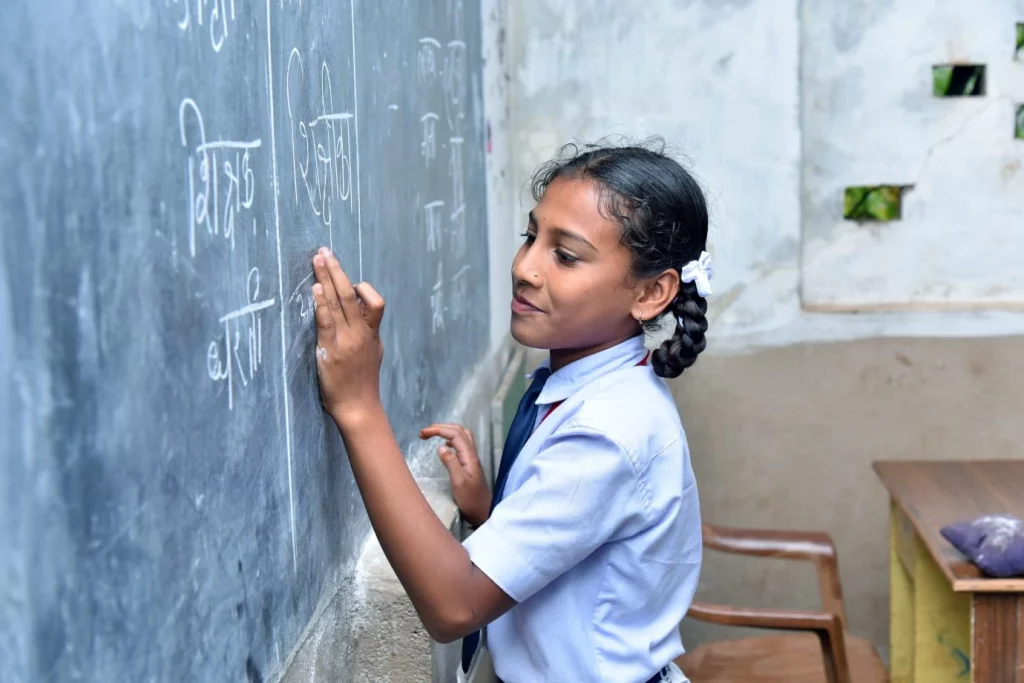Every now and then, we come across a news story highlighting that thousands of applicants appear for a handful of jobs advertised by either a government agency or private organisation. In fact, when it comes to a government job, even for a position like peon, people who hold BA and MA degrees stand in long queues for hours.
This indicates a worrying trend in India where the problem of educated unemployed has been a major concern. Being the youngest country in the world, India has the largest number of working populations, many of whom are highly-educated. However, the global economy’s lacklustre performance since Covid-19 and local factors within the country have created a situation where these educated youngsters do not have the job opportunities they need.
Why is the educated unemployed a peculiar problem of India? Let’s look at the reasons behind this problem.
Mismatch between education and employment
India faces a paradox: an abundance of educated individuals coexists with a scarcity of suitable employment opportunities. There are various reasons for this. One of the biggest reasons is the rising educational aspirations of Indians. More and more people are investing in getting quality education, sometimes sending their children to the best institutions in the country and the world. However, this growing trend of getting quality education is not supported by an equally robust job market. While there is an influx of graduates, it is not aligning with the demands of the job market.
At the same time, while the quantity of educational institutions has grown, the quality and relevance of education remain uneven. Many graduates lack practical skills or industry-specific knowledge required by employers. This is because the institutions are not yet equipped to prepare the students for industry-specific work. Additionally, societal preferences often favour white-collar jobs, leading to oversupply in certain fields (such as engineering and management) while neglecting vocational and technical skills.
Structural issues in job market
In India, the informal sector employs a significant portion of the workforce. However, it offers limited job security, low wages and minimal benefits. Graduates find it hard to fit into this predominantly unorganised sector. This creates a huge demand for government jobs which provide the necessary security and respect. It may be the reason why even those with bachelor’s and master’s degrees prefer to apply for low-grade government sector jobs.
Also, urban centres attract educated youth, leading to overcrowding and fierce competition for jobs. Rural areas, on the other hand, struggle with underemployment and lack of opportunities. Then, there are gender disparities that need highlighting too. Educated women face additional hurdles due to societal norms, safety concerns, and limited mobility. Their participation in the workforce remains disproportionately low.
Economic factors and job creation
One of the biggest reasons, as also discussed previously in the article, is slow job growth. While the educated workforce is increasing every year, the number of jobs being added to the market is comparatively lower. India’s economic growth hasn’t translated into commensurate job creation.
The lack of viable non-farm employment options exacerbates the problem. While formal sectors like IT and finance thrive, they absorb only a fraction of the educated workforce. Informal sectors struggle to absorb the surplus. Women constitute a staggering 76.7% of the educated unemployed youth, compared to 62.2% for men. This gender disparity compounds the issue.
Policy intervention to solve the problem of educated employed
There are a number of policies that the government of India has been running to provide the necessary skills to people. Initiatives like National Skill Development Corporation (NSDC) aim to reach a large section of the Indian population and enable them to find the right jobs. However, there are many gaps highlighted in such initiatives. At the same time, focusing on skills might not be helpful. A more difficult task is to bring jobs to the country by giving a push to the industry. More manufacturing facilities mean job creation for a larger population.
However, if India wants to create job opportunities for its educated youth, the country needs to focus on jobs that are in accordance with the skills of these people. To do that, the country needs to create a favourable environment for international companies to set up their offices in India and provide jobs to the country’s youth.
Not just that, there needs to be a push in the direction of creating local employment opportunities by encouraging entrepreneurship. Over the last decade, India has already seen a rapid increase in the number of start-ups in diverse sectors. This has added lakhs of jobs both for the skilled and unskilled workers. However, there needs to be a continued growth in this direction to ensure that it can match the growth in the number of educated people entering the workforce.
At the same time, balancing formal and informal sectors, promoting flexible work arrangements and addressing gender biases are essential. And to create a favourable work environment in the country, the government also needs to work on comprehensive social policies. Investing in healthcare, childcare and eldercare infrastructure can ease the burden on educated women, enabling their participation in the workforce.
Educated and employed India
Educated unemployed remains a peculiar challenge for India. As the nation strives for inclusive growth, addressing this paradox requires concerted efforts from policymakers, educators and employers. Only then can we bridge the gap between education and meaningful employment, ensuring that every educated individual contributes effectively to India’s progress.
Smile Foundation is addressing the critical issue of youth unemployment in India through its skilling and livelihood programme, STeP (Smile Twin e-Learning Programme). Recognising the mismatch between education and job market demands, Smile Foundation focuses on equipping young people from underserved communities with practical skills and industry-specific knowledge.
By partnering with various stakeholders, the foundation offers vocational training, career counselling and placement support to bridge the gap between education and employment. These initiatives empower youth to secure meaningful jobs, contributing to their personal growth and the broader economic development of the country.










